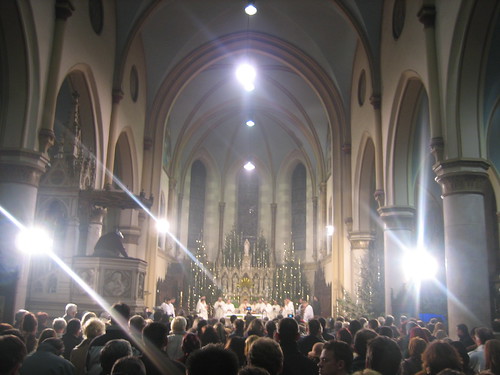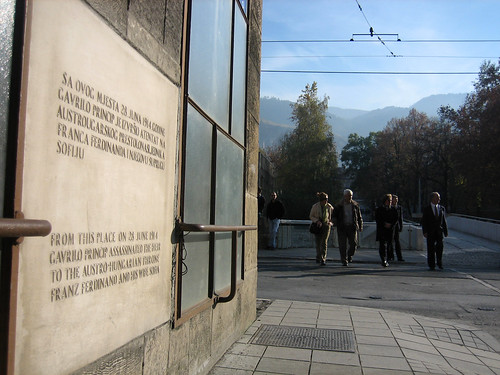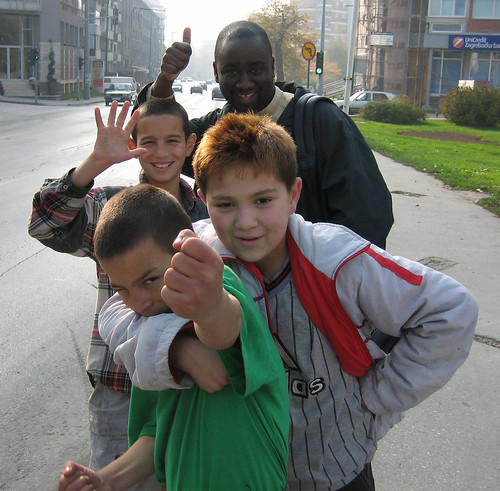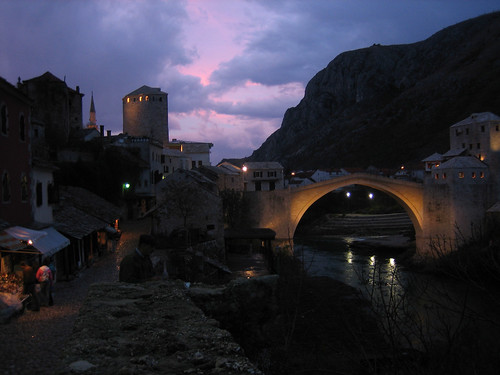Dino
Now he works for Swatch in Sarajevo and as a result wears an ostentatious swanky watch and a slick ski-jacket emblazoned with the company logo. Dino smokes, drinks and calls himself a "social person." Indeed, he is often out on the town surrounded by friends. He speaks almost perfect English and talks at a fast clip.
He is liberal-minded. In the last election, he voted for the only multi-ethnic party which seeks a united Bosnia. He still agrees with their policies, but now realizes that they too are just as power hungry as the nationalists. He tells me that the only way to solve the divided political scene in the country is to have residents of the Serbian Republic have their votes counted only in the Muslim-Croat Federation, and vice versa. That way they would be forced to vote for liberal politicians who seek tolerance of minorities. This would be kind of like Israelis voting for the Palestinian leadership, while Palestinians elect the Israeli prime minister. I chuckle at his suggestion, but Dino bristles and says he's serious: "You need a radical solution."
I am surprised when he says that the war was "a better time" than the 10 years since. He miraculously lost no friends or relatives during the war, and this may be why. But other friends, one in particular who lost several relatives and is brought to tears every time they are mentioned, tells me she understands Dino's train of thought. During the war there was a sense of purpose, a driving force in life. Friends and families came together as never before. Life was hard, but tragedy became just another routine, and every day was filled with drama, with excitement. But ever since, there has been no clear future for Bosnia -- it wallows in a kind of political and economic limbo.
It seems to Dino that things are actually getting worse. The nationalist parties that brought the country to war are still in power and it is as difficult as ever to find a job. Corruption is actually growing, and ethnic hatred persists. Like so many young people I have met, Dino sees no prospects for success or stability in Bosnia. He does not for a second want a return to war, but at the same time there is nothing to work hard for, no dreams that seem attainable. He tells me that a recent poll said that 70% of Bosnians would leave the country if they could.
Dino too plans to leave. He wants to move to Albania by the spring. When I express shock that his escape route will take him to one of only two countries in Europe that is actually poorer than Bosnia, he tells me he has an Albanian girlfriend whom he wants to marry. But the main reason, he says, is that, unlike Bosnia, there is a bright future for Albania. There are 4 million Albanians in the country, but 8 million others living abroad, and their investment dollars are pouring in. Albania has two coasts with potential for developing major ports. Russia plans to build an enormous oil pipeline through the country. "At least things are changing in Albania," Dino says.




